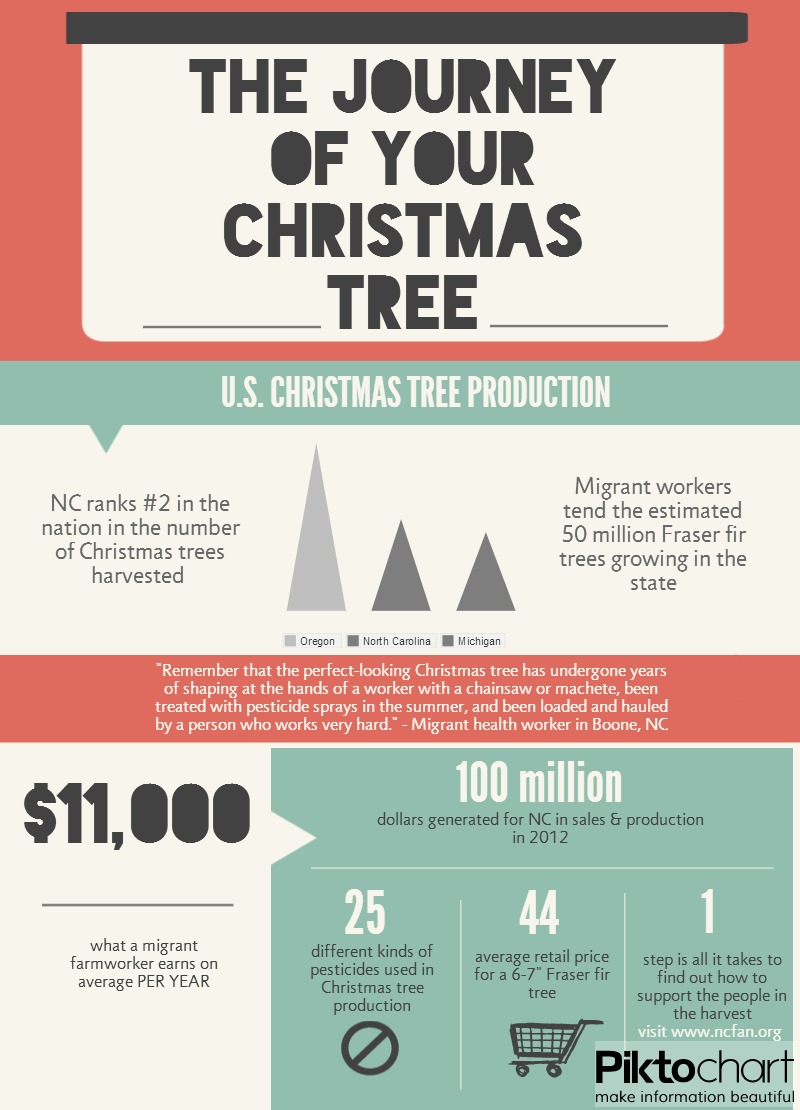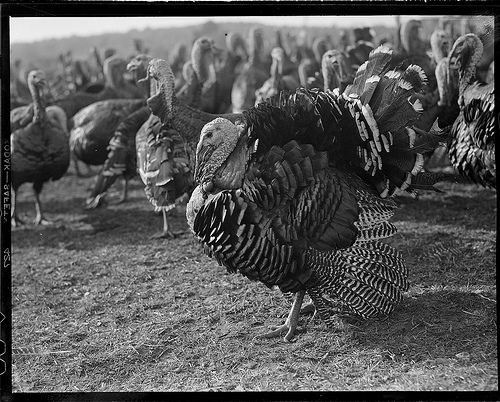Tough Road Ahead for NC Poultry Workers
 Monday, February 17, 2014 at 10:52AM by
Monday, February 17, 2014 at 10:52AM by  Chris Liu-Beers
Chris Liu-Beers Guest post by John Zambenini, Duke Divinity School Intern
The Raleigh News & Observer reported recently that work may be getting harder for North Carolina’s poultry workers. If the Obama administration gives the go-ahead, new policies already backed by North Carolina Senator Kay Hagan will allow the difficult speeds at which workers must process chickens to increase. Under the new regulations, the total output of inspected birds would increase from 140 birds per minute to 175.
Facing a dizzying onslaught of chickens and turkeys on fast-moving mechanical equipment, workers risk injuring hands, wrists, and shoulders from the quick, repetitive motions needed to process the birds. A mistake with a knife at such a rate can be costly, and the work often comes with low pay and little protection. Many injuries go unreported, according to the News & Observer story, because workers are afraid of being fired and have few other options for work in the United States.
At a recent Day of the Dead memorial service hosted by the Farmworker Advocacy Network – a statewide coalition which includes the NC Council of Churches – workers told reporters that as they gain experience, the number of birds they must process increases. Pay raises, however, were so meager that with the increased number of birds to process, their wages were effectively cut. With the anticipated changes, the output of poultry processing facilities is expected to increase even more, with little promise of benefit.
On the same day, officials released stats on annual workplace deaths in the state. Despite a decrease from last year, Labor Commissioner Cherie Berry conceded the state must do better, the News & Observer reported. Preventing a death here, or protecting a worker against pesticide exposure or injury there, is a worthwhile endeavor. While increased workplace safety is commendable, incremental reductions of injuries and deaths represents a misguided view of what it means to live and work in North Carolina.
This kind of effort alone creates a culture of acceptable margins of error for injury and death when year-end statistics are released, rather than endeavoring to create a humane, safe and just climate for labor in North Carolina in the first place. It has nothing to say of creating a clean, hospitable environment when migrant workers, upon which the industry is dependent, are employed. This kind of labor culture also has nothing to say for the powerless when increased production is demanded with no promise of the support needed to sustain them.
Meanwhile, industry trade journal Ag Professional is reporting that 2013 meant huge growth in North Carolina’s $70 billion agriculture industry, with continued expansion expected in 2014. The policy changes backed by Sen. Hagan and the poultry industry no doubt promise growth for North Carolina’s $13 billion poultry industry, as well. Progress is evidently being made, growth is happening. But what are we becoming if we grow with little concern for those upon whom we are dependent?
The post Tough Road Ahead for NC Poultry Workers appeared first on NC Council of Churches.













